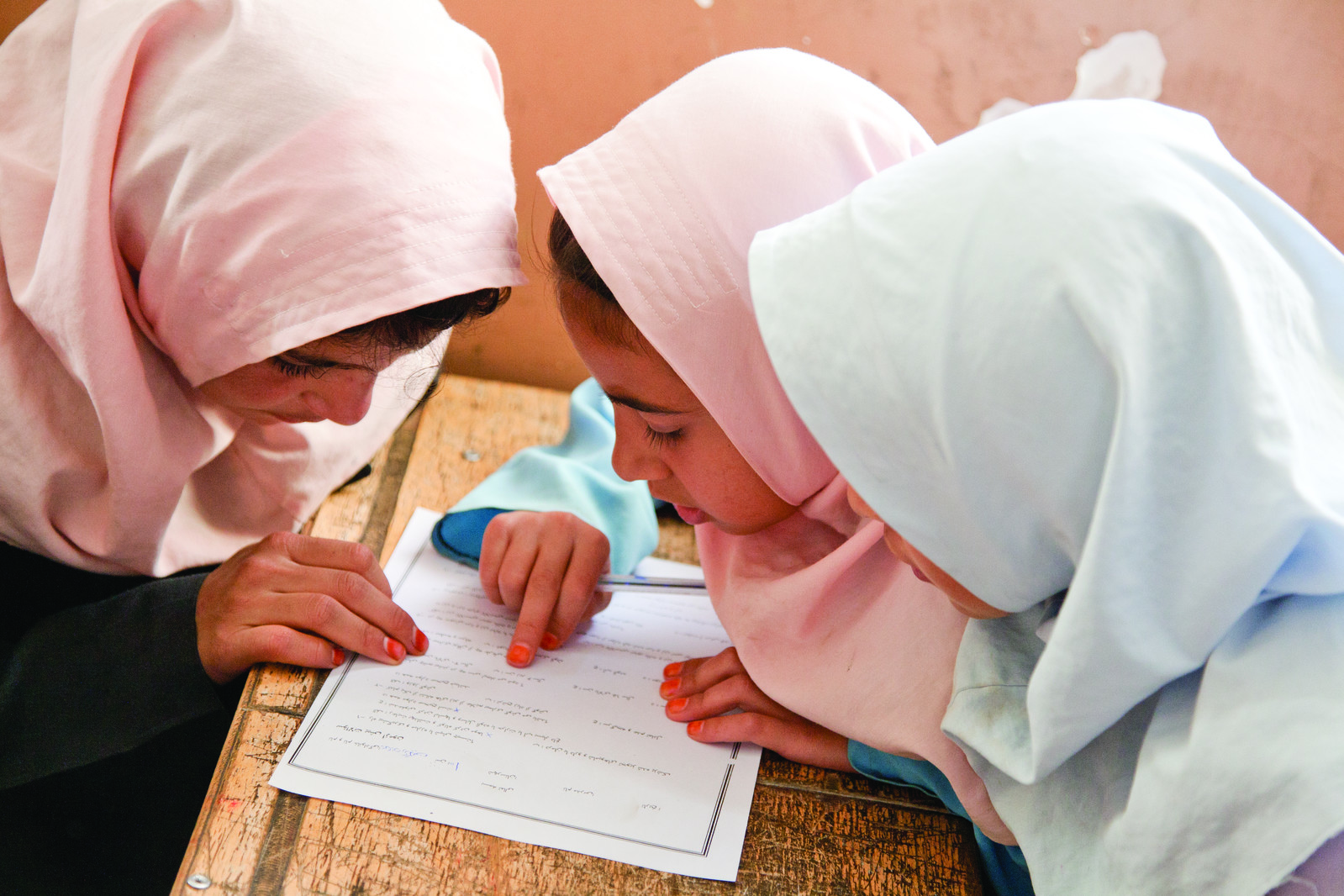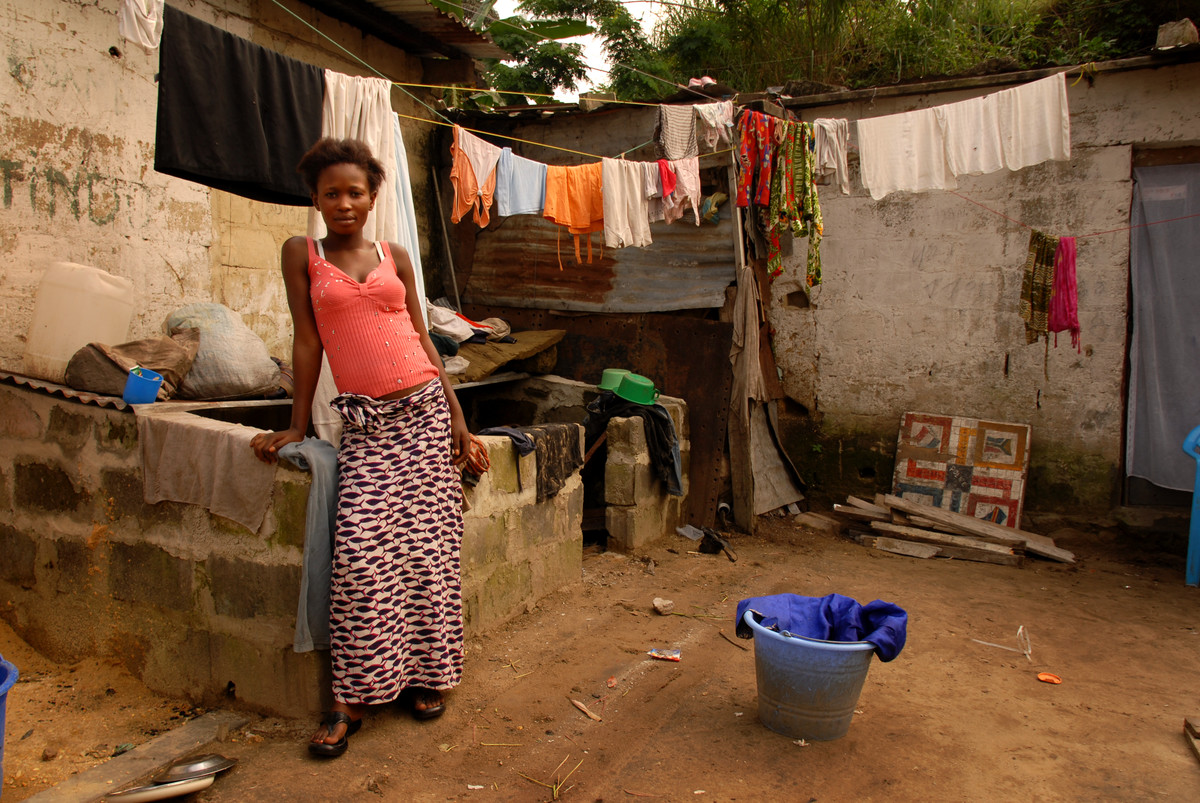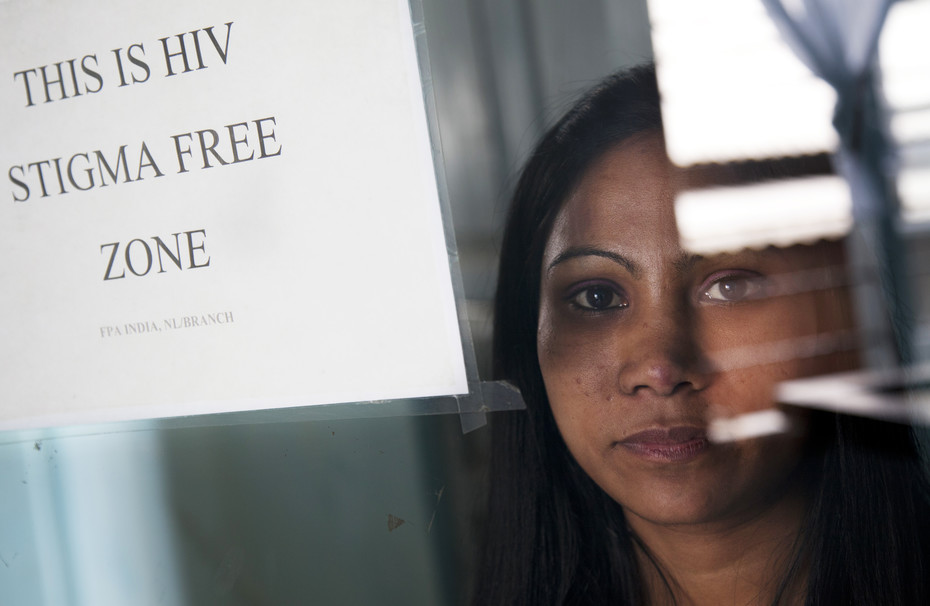
| 16 September 2016
Help free Leoba and James, jailed for five years
Across the globe, women who want to end an unwanted pregnancy are faced with numerous challenges, not least of which is navigating the legal restrictions that prevent women from accessing safe abortion. In Papua New Guinea it is no different. Located in the South Western Pacific, the country has a high unmet need for family planning and the majority of women wishing to delay or prevent pregnancy are without the means to do so. It is no surprise then, that unwanted pregnancy is a common experience for women in PNG. This is the situation that Leoba Davana and her husband James Channel found themselves in. Already with two young children to care for, and having previously experienced a life threatening pregnancy, Leoba and James made the decision to have an abortion. Unfortunately, Leoba experienced complications and upon seeking post abortion care she and James were arrested. They now face up to 5 years in jail. In PNG, abortion is legally restricted and only permitted if there is a significant threat to the woman’s health. In addition, any abortion must be carried out by a registered practitioner. In a country with a critical shortage of doctors and with the majority of the population living in rural areas, the ability to obtain a safe and legal abortion is near impossible for the majority of women. Leoba and James’ case has serious implications for women’s health in PNG. Unless overturned, this conviction will jeopardise efforts to provide access to post abortion care and contraception in the country, and further limit women’s rights and opportunities. We know that criminalising abortion is only effective at making abortion less safe. And where women have limited access to contraception the need for access to safe and legal abortion is even more urgent. In countries like PNG, too many women are too often faced with a stark choice between risking their health and well-being by continuing with an unwanted pregnancy, or risking their health and freedom by obtaining an unsafe and illegal abortion Leoba and James’ case will be reviewed by the PNG Supreme Court in the coming weeks. Funds are urgently requested to help cover legal costs. To date K16,593.94 has been raised of the required K50,000. Please support them by donating at: Account Name: Safe Motherhood Alliance PNG Bank: ANZ, Harbour City, NCD, Papua New Guinea BSP: 018-912 Account Number: 14402886 Swift Code: ANZBPGPX Ref: SvD E-mail: [email protected]

| 06 September 2016
IPPF responds to the launch of UNESCO’s Global Education Monitoring Report
IPPF welcomes UNESCO’s 2016 Global Education Monitoring Report (GEMR) launched today, which sheds stark light on how off track we are in meeting education targets adopted as part of the Sustainable Development Goals (SDGs) only a year ago. Education is a powerful tool to empower girls and is considered a key pathway to future employment and earning. Educated women are more likely to marry later, use family planning and access health care; and to understand their rights and have the self-confidence to act on them.[1] Each additional year of schooling for girls improves their employment prospects, increases future earnings by about 10 per cent and reduces infant mortality by up to 10 per cent.[2] IPPF notes that the GEMR affirms comprehensive sexuality education “as one of the most pressing and universal priorities for the health, well-being and development of young people”. IPPF’s own programmes and research support the central role of CSE in delivering better outcomes for young people [3]; programmes delivered in schools, paired with accessible youth-friendly health services, have been shown to be not only cost-effective, but also cost saving for governments.[4] Evidence shows that education not only plays an important role in preventing negative sexual and reproductive health outcomes, but can also promote gender equality and human rights. There is convincing evidence for governments to invest in CSE that includes a focus on gender, rights and empowerment. Even though there has been progress, with many countries adopting sound policies and scaling up there programming of CSE, implementation is often nowhere near good enough and does not always reach young people who are not in school. As the GEMR shows, measuring progress towards countries’ implementation of CSE is not adequate and initiatives to monitor national implementation of programmes must address the tension between national values and commitment to a global agenda. SDG target 4.7[5] introduces education for global citizenship and sustainable development, explicitly linking education to other Sustainable Development Goals (SDGs), highlighting the transformative aspirations of the new global development agenda. Part of this aspiration must include enabling young people to realize their rights, by challenging and changing social norms, by empowering them, and allowing them to make informed choices about their health. The GEMR launched today sends a loud and clear message to governments around the world. Business as usual will not suffice. In order to respond to the growing education and health gaps that are disproportionately affecting the most marginalized young people across the world, IPPF urges governments to implement high quality sustainable CSE programmes that encompass information and education about sexual and reproductive health, gender, rights and empowerment principles, and that encourage critical thinking in young people. Only then will a transformative development agenda be possible. Read more about IPPF’s position on CSE in our latest policy report: [1] USAID. Op. cit.; United Nations Millennium Project Task Force on Gender Equality (2005) Taking Action: Achieving Gender Equality and Empowering Women. This contributes to their social empowerment and status: Eyben R (2011) Supporting Pathways of Women’s Empowerment: A Brief Guide for International Development Organisations. Pathways Policy Paper. Brighton: Pathways of Women’s Empowerment. [2] World Bank (2002) Opening Doors: Education and the World Bank. Available at Accessed 14 January 2015. [3] IPPF (2016) Everyone’s right to know: delivering comprehensive sexuality education for all young people. [4] UNESCO (2011) Cost and Cost-effectiveness Analysis of School-based Sexuality Education Programmes in Six Countries. Geneva: United Nations Educational, Scientific and Cultural Organization. [5] Target 4.7 states ‘By 2030, ensure that all learners acquire the knowledge and skills needed to promote sustainable development, including, among others, through education for sustainable development and sustainable lifestyles, human rights, gender equality, promotion of a culture of peace and non-violence, global citizenship and appreciation of cultural diversity and of culture’s contribution to sustainable development.’

| 24 May 2016
IPPF welcomes Guttmacher Institute’s new worldwide study on abortion
IPPF welcomes the release by the Guttmacher Institute of new worldwide estimates of abortion incidence. These estimates provide valuable information for organizations like IPPF working to improve access to sexual and reproductive health and rights. A key finding from the study is that roughly one in four pregnancies globally ends in abortion, showing that abortion is a common occurrence in many women’s life. The study also shows that the larger decline in abortion rates between 1990 and 2014 occurred in developed countries (where abortion is generally legal and available), but rates have not changed significantly in the developing world, where abortion laws are often restrictive. This demonstrates that restricting access to safe legal abortion does not reduce the number of abortions but rather pushes abortions underground, leading to risks to women’s health and lives. While estimates seem to indicate a reduction in abortion related deaths, complications from unsafe abortion - while less serious due to increased access to post-abortion care and increased availability of misoprostol - continue to affect millions of women each year. In fact, data for 2012 show that 6.9 million women in developing regions were treated for complications from unsafe abortions. Developing regions also continue to be disproportionally affected by unsafe abortion, with nearly all deaths due to unsafe abortion occurring in developing countries, with the highest number occurring in Africa. Very importantly, the study outlines how high levels of unmet need for contraception contribute to higher abortion rates in developing regions. This again shows the relevance of organizations like IPPF working to prevent unwanted pregnancy through modern contraceptive services, promote comprehensive sexuality education and eliminate sexual violence and coercion. At the same time, IPPF recognizes the importance of increasing access to safe abortion services and IPPF will continue to provide access to safe abortion and to promote a woman’s right to choose.

| 18 April 2016
Progress on realising the SRHR promise to African youth at CPD49
Today at the 49th meeting of the United Nations Commission on Population and Development in New York, IPPF’s Director General, Tewodros Melesse spoke to a full room as part of a side-event panel addressing the topic of young people in Africa. The side-event was chaired by South Africa’s Ambassador Kingsley Mamabolo who deftly steered the discussion. The first panellist was UNFPA’s Regional Director for East and Southern Africa, Dr Jullita Onabanjo. She spoke about the importance of the Addis Ababa Declaration on Population and Development for the region. The Declaration was agreed in October 2013 as part of a series of regional reviews feeding into the overall review of progress on the Programme of Action of the International Conference on Population and Development (ICPD). The Declaration, agreed by African Governments, sets out a series of commitments to action, including on sexual and reproductive health, comprehensive sexuality education, data collection and governance: http://icpdbeyond2014.org/pages/view/6-africa Dr Onabanjo called for African governments to share their national experience and learning arising from efforts to implement the Addis Declaration. She looked forward to a platform for this exchange which would also support monitoring of progress on the Declaration and accountability. She recommended a structured and continuous dialogue to take stock and relate monitoring of the Declaration to broader monitoring of the Sustainable Development Goals. The second speaker, Zane Dangor, Special Advisor to the Minister of Social Development, South Africa, started by sharing shocking stories of young women who had suffered or died because they lacked access to safe abortion services. He also told us how Eudy Simelane, a female footballer from South Africa’s national team, was raped and murdered because she was openly lesbian. Zane explained that the Addis Ababa Declaration provides guidance on what states need to do to prevent suffering and deaths like these. South Africa has enacted hate crimes legislation to protect people like Eudy based on domestic legislation, and international agreements, including the Addis Declaration. South Africa has also established an inter-ministerial committee on Population and Development matters to monitor implementation of local, regional and international agreements. Additionally, South Africa has worked to identify gaps in health systems in relation to provision of sexual and reproductive health and rights services that are free from stigmatization and discrimination. Zane described how particular paragraphs in the Addis Declaration provided guidance to South Africa, citing sections about revision of discriminatory laws and policies; ensuring legal systems comply with international human rights regulations and laws; promulgation and enforcement of laws to prevent and punish hate crimes and to protect all people from discrimination and violence; and operationalisation of the right to the highest attainable standard of health. Pointing out that sexual and reproductive health and rights can never be divorced from the pursuit of gender equality and equity, and the full empowerment of women, Zane stressed that the Addis Declaration builds on existing provisions of the African Union to recognise and promote women’s human rights and that it commits governments across Africa to harmonise national legislation with all the relevant international instruments on gender equality and women’s empowerment. Zane concluded with a reminder that the Addis Declaration recognises that we must not choose between rights and development, and that the one cannot be achieved without the other. He supported references to the outcome documents of the regional review conferences – such as the Addis Declaration – in the final resolutions of the Commission for Population and Development, pointing out that words in this context are windows to our consciousness, so we need to embody the spirit of leaving no one behind and ending violence based on discriminatory laws and practices. The third speaker was Dr Simon Miti, Permanent Secretary from the Ministry of National Development Planning in Zambia. Dr Miti explained that a recently conducted demographic study in Zambia was a real eye-opener. It revealed that Zambia currently has the highest ever number of young people in its population: a clear ‘youth bulge’. This realisation led the government to think about how best to realise the demographic dividend through investing in young people’s health, education, rights and employment. Last year the Government of Zambia revised the national youth policy to improve participation of young people, including in the areas of adolescent sexual and reproductive health. The new National Ministry of National Development Planning was also created to help deliver integrated decision-making and implementation across different policy areas affecting young people. Tewodros Melesse, Director General of IPPF, took the floor with optimism, seeing the Addis Declaration as a sign of progress and emphasising that it requires governments to implement the ICPD Programme of Action at national and regional levels. He urged governments to ensure that teachers and the police, the judiciary, private sector and Ministry of Finance all understand the importance of protective legislation and implementation of the Addis Declaration. He called on donors to be partners for implementation, and on Parliamentarians and the media to hold governments to account. Mr Melesse described IPPF’s contribution as a locally owned, globally connected Federation, working for sexual and reproductive health and rights, gender equality and women’s empowerment in over 170 countries. IPPF provides millions of services to young people and delivers comprehensive sexuality education both in and out of school. IPPF believes in empowering young people, and alongside supporting six regional youth networks, IPPF’s governance structure requires that 20% of Board members, at both regional and global levels, are under 25 years old. Noting that about one in five of the young people in the world today live in Africa, Mr Melesse highlighted the potential of the demographic dividend, urging governments to invest in young people’s health, rights and education, including comprehensive sexuality education. He warned that countries with high youth unemployment and poverty could face social instability and urged governments to support youth leadership. Questions from the floor focussed on comprehensive sexuality education, youth leadership and the role of the media, including new media, in providing accurate, evidence-based information for young people about health and rights. The panel concurred on the importance of these issues. The event ended with agreement that the Addis Declaration contained important promises to the young people of Africa and that while progress was being made more needed to be done to turn words into actions on the ground, and to hold governments to account for implementation.

| 08 March 2016
IPPF welcomes new UN commentary on indivisible right to sexual and reproductive health
On International Women’s Day, the International Planned Parenthood Federation (IPPF) has welcomed a new commentary from UN experts which says that the right to sexual and reproductive health is indivisible from other human rights. “It is absolutely right for the Committee to address the issue of sexual and reproductive health specifically, today of all days,” said Tewodros Melesse, IPPF’s Director General. “Sadly millions of women are still denied their basic rights because they are poor, because they suffer discrimination or because they lack legal protection.” The 18 independent members of the Committee on Economic, Social and Cultural Rights said that the right to sexual and reproductive health was not only an integral part of the general right to health, but fundamentally linked to the enjoyment of many other human rights, including the rights to education, work and equality. They said that a lack of care for mothers in childbirth or a lack of access to safe abortion, often leading to maternal death, constitutes a violation of the right to life, and in certain circumstances can amount to torture. “No woman should die in childbirth in 2016 because of a lack of adequate care,” said Mr Melesse. “We know that access to safe abortion saves women’s lives, yet millions are denied that right.” IPPF is a network of sexual and reproductive health and rights organisations in 170 countries that are equipped to monitor and respond to any member of the public who wants information, services, contraception and access to abortion and are available to serve at the first point of response. For further information and interviews contact press office 02079398227

| 07 March 2016
IPPF welcomes European Commission pledge to Global Fund
IPPF welcomes the news that the European Commission has made the first pledge to the Global Fund to fight AIDS, Tuberculosis (TB) and Malaria’s 5th Replenishment – €470 million. That’s an increase of €100 million, or 27 percent, on its previous contribution. "At a time when Europe is facing many budget challenges, this contribution shows great commitment toward global health and ending epidemics as a priority," IPPF’s senior HIV and AIDS adviser Alan Smith said. “Although huge progress in the fight against HIV has been made, there remains much to be done to achieve the end of AIDS as a public health threat by 2030, not least of which is funding the UNAIDS fast track strategy, to which this is a significant contribution. We call on other donors to emulate the Commission in increasing their pledges to global fund” In 2014 IPPF provided 32 million HIV services around the world.







